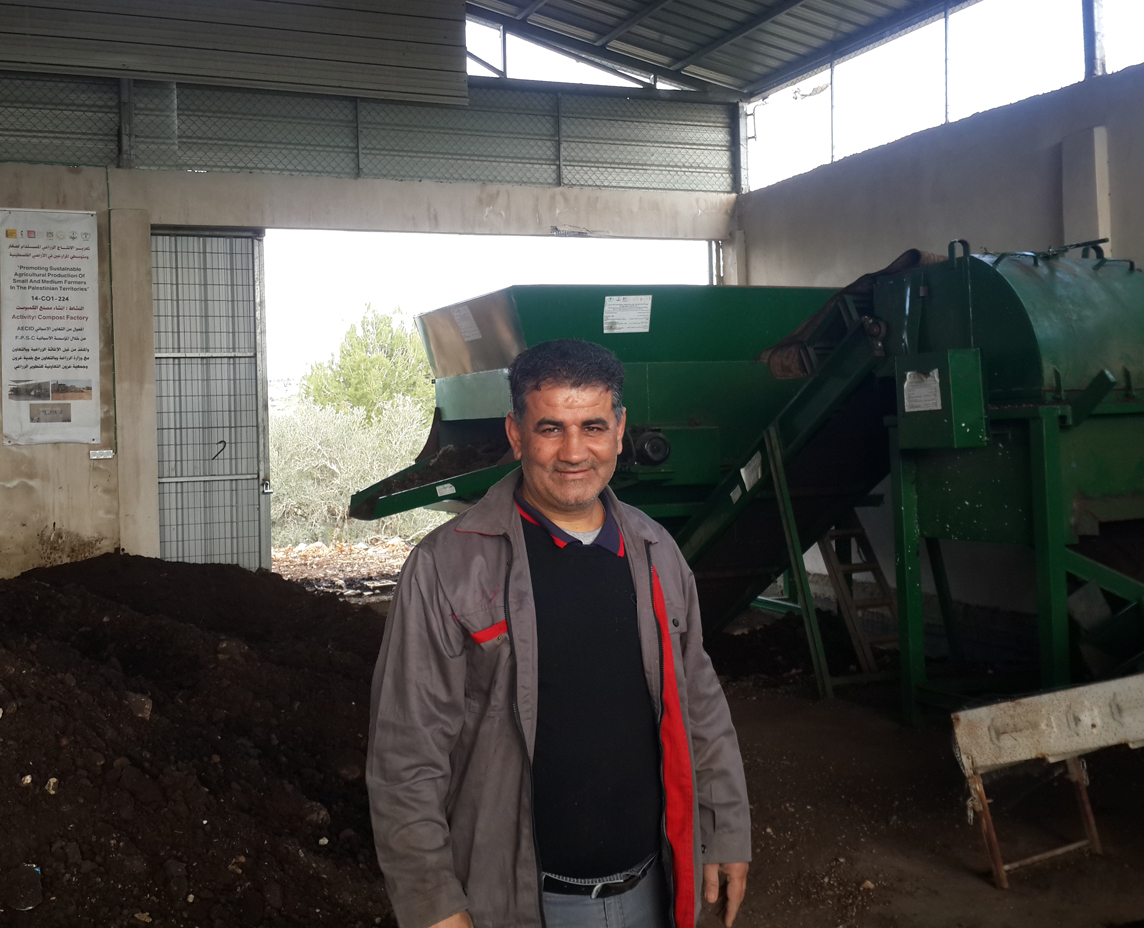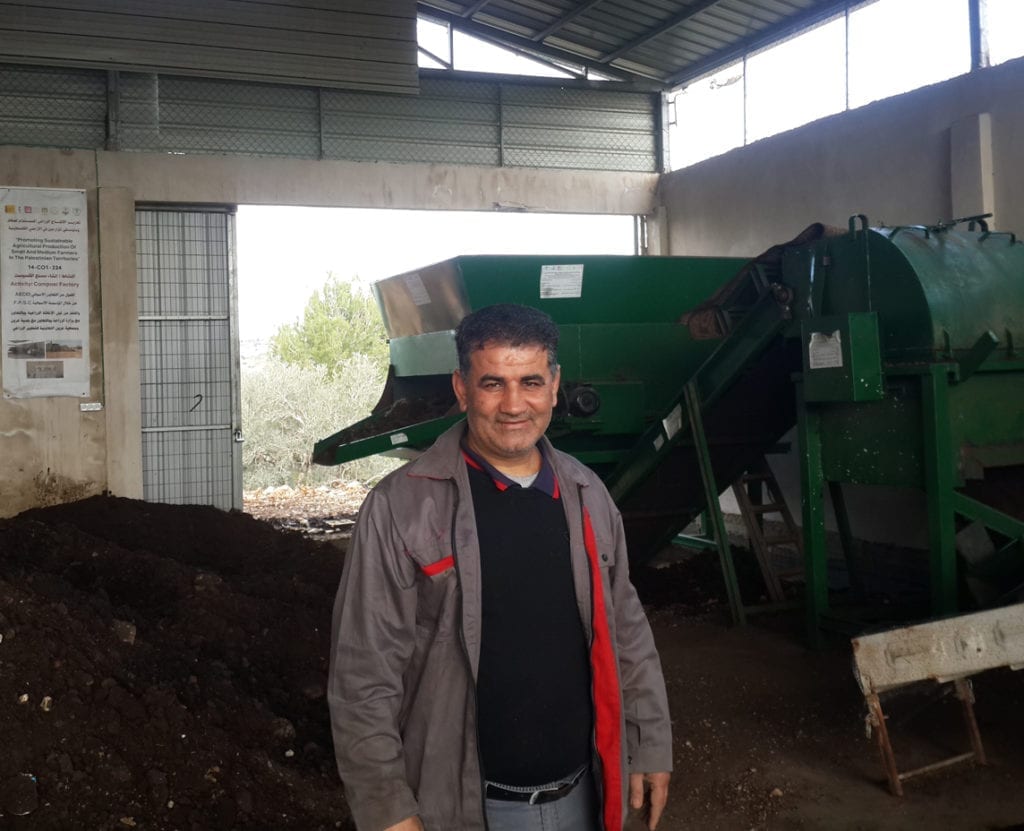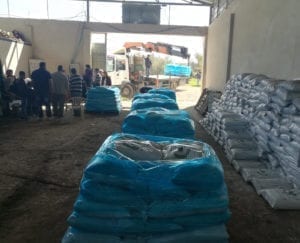Nidal Abdel Rahim Radwan is 49 years old and since 2017 he has been able to support his family by bringing home a monthly income. As the family breadwinner, he can pay now the school for his 4 kids and bring food to his table every day whilst he dreams about saving enough money to buy a car and distribute the compost to the selling points increasing the activity of the plant.
I feel more secure now, I am very happy providing to my school-age children what they need.
Nidal is one of the workers of the compost factory created by the Social Promotion Foundation in Azzoun (Qalqilya Governorate) in the northern West Bank in Palestine. The plant was built under the framework of the Agreement 2014, which was funded by AECID and implemented by our main local partner, PARC.

This is only a glimpse into the daily live and the dreams of the direct beneficiaries of our programme, but the plant is also playing a crucial role in securing farmers in Azzoun with a constant supply of safe and organic fertilizers. The local compost is using organic waste from vegetable and trees, farms, poultry, sheep and cattle residuals. In so doing, it is contributing to substantially improve the quality of the soils and to reduce the amount of organic waste to be disposed.
The agreement reached with the Azzoun Municipality and the farmers´ cooperative in the framework of the Agreement, financed by AECID and implemented with PARC, ensures the sustainability of the plant and a constant source of income for their workers.
Certified by the Ministry of Environment, the plant is also helping to the conservation of the very fragile natural resources in the area and saving energy through the installation of on-grid solar system, producing green energy and contributing to combat climate change.







